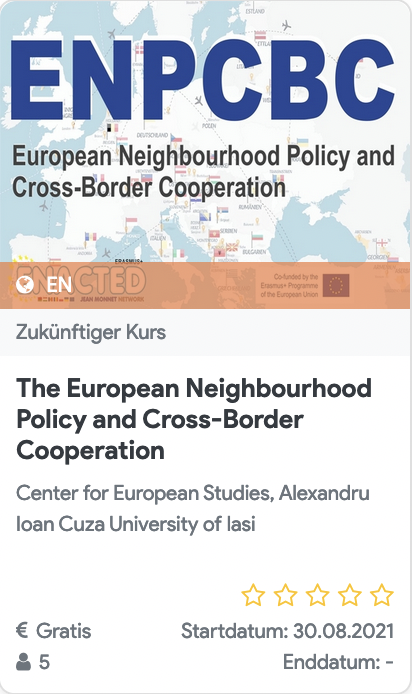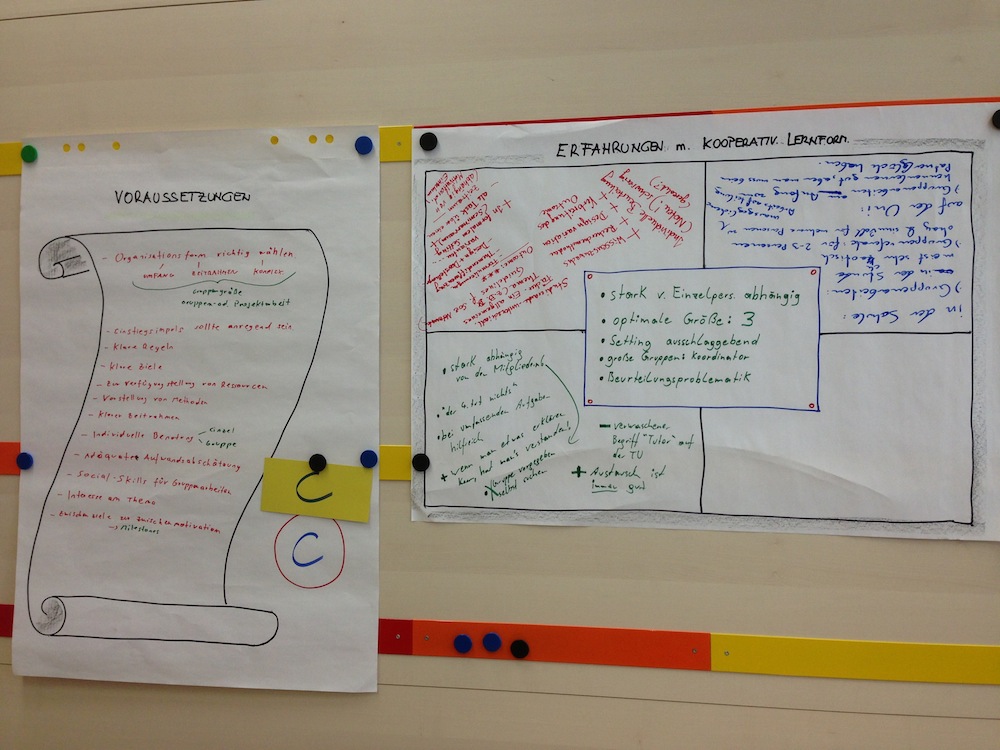We are happy to announce that today a new MOOC is starting titled „The European Neighbourhood Policy and Cross-Border Cooperation„:
The European Neighbourhood Policy (ENP) has increased the reach and clout of the EU beyond its borders into the immediate vicinity. Yet, the EU vs. non-EU discrepancies at the economic and political level are still very much visible in the eastern borderlands of the EU which comprise areas of land under the jurisdiction of both the EU and the Eastern Partnership (EaP) states. Thus, in line with the 2015 ENP Review and the subsequent 2016 Global Strategy for the EU’s Foreign and Security Policy (EUGS), which both emphasised the urgent need for reconsideration of the EU’s neighbourhood and external instruments, the role of borderland regions has also been seen as prominent for enhancing cooperation between Eastern European EU and non-EU members and for strengthening regional stability and security.
This course addresses all students interested to enhance their knowledge in issues ranging from the EU’s actorness, the ENP and the EaP to cross-border cooperation.
This MOOC aims at equipping students, young professionals, civil society representatives, public servants, etc. with basic knowledge and practical experience in the (geo)political, economic and social processes occurring in European Union (EU)’s eastern neighbourhood.
As usual the participation is completly free, so just register and have fun with this online course.
[Join free course on „The European Neighbourhood Policy and Cross-Border Cooperation“]


